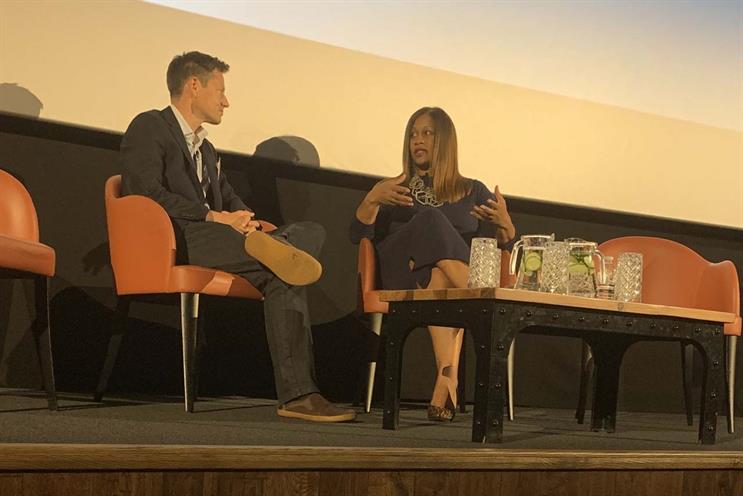
Karen Blackett, UK country manager at WPP, has expressed frustration that some companies appear to regard targets to improve diversity in the workforce as "a problem" to rectify, rather than "a solution" that is good for business.
Blackett, who was appointed the government's first race equality champion in 2018, is pushing for UK companies to disclose their ethnicity pay gap for black, Asian and minority-ethnic employees in a similar way to the gender pay gap that highlighted the difference between how much women and men earn.
She said companies should recognise that increasing diversity "is the right thing to do, but there are huge financial benefits to doing it" as well, because the UK has a significant and growing BAME population.
"I am so tired of diversity being seen as a problem that exists in companies rather than it being seen as a solution," Blackett said in a Q&A session with Sam Tomlinson, a partner in PwC’s media assurance team, at the consulting group’s media conference at the Picturehouse Central cinema in London.
Blackett pointed out that about 25% of UK schoolchildren now come from a BAME background.
"I don’t understand why more businesses don’t get it, because it’s about future-proofing your business," Blackett said.
She warned that companies that fail to embrace diversity and "understand modern Britain" are "going to miss out".
Blackett said that she has continued in her role as race equality champion since Boris Johnson replaced Theresa May as prime minister in July.
She added that Whitehall remains committed to the introduction of an ethnicity pay gap that would work in a similar way to the gender pay gap that UK companies with more than 250 staff must now disclose.
The government has held a consultation about introducing the ethnicity pay gap.
it was one of the last things that May "was trying to push through before she left office" and they have been "slightly delayed, as is everything else", because of the political turmoil over Brexit, but "it is going to come", according to Blackett.
She said her experience as UK chief executive of MediaCom, Britain’s biggest media agency, between 2011 and 2016, and subsequently as its chairwoman, meant that "I know diversity works in terms of building successful businesses and winning teams".
She went on: "Of course there are moral reasons for doing it, but actually there are commercial reasons [given the UK’s large and growing BAME population].
"We have a huge responsibility in our industry in terms of creating [media and advertising] content that can help our clients’ business grow, but also content that can make people feel as though they belong."
Helping companies grow and improving diversity "are not mutually exclusive", she said.
WPP is one of the largest employers in the UK creative industry with about 14,000 staff.




.jpg)
.jpeg)
